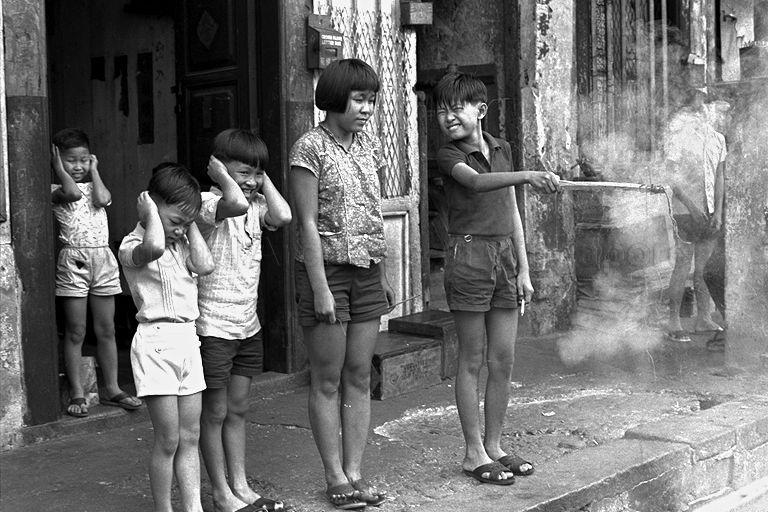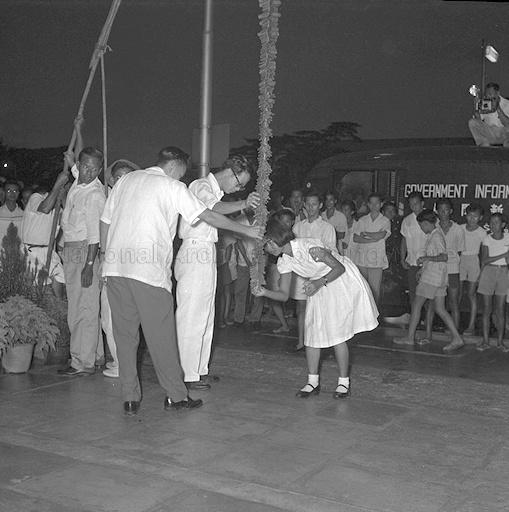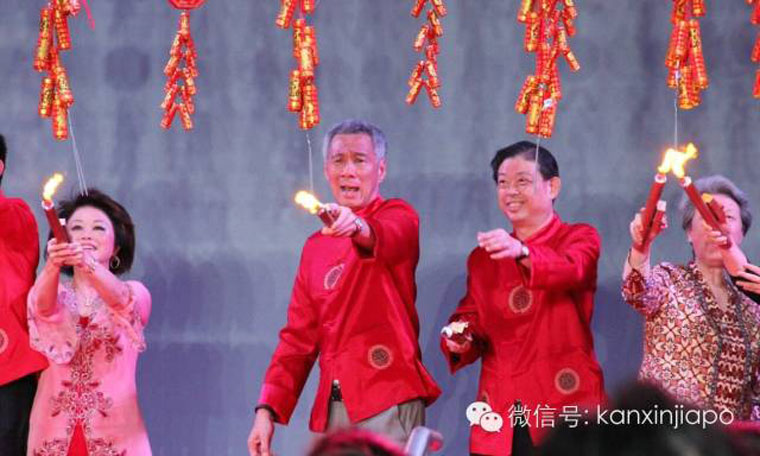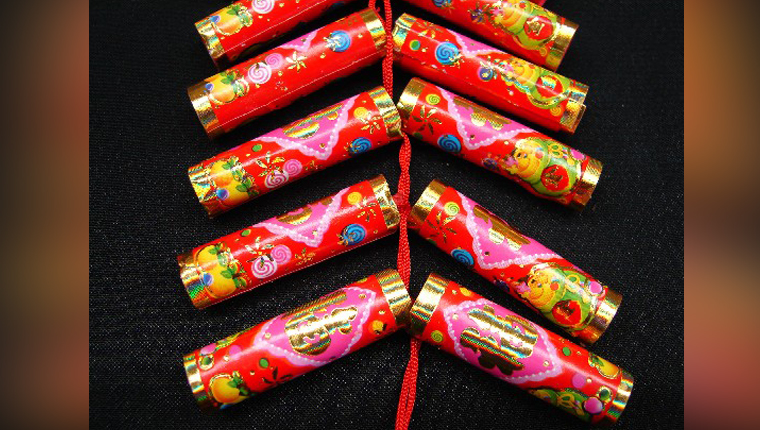If you grew up in the 1980s and after, chances are you might have never seen a real life firecracker in the flesh.
This is unlike our neighbours in the north who revel in their explosive celebrations every year.
[embed]
Firecrackers are called 爆竹 in Mandarin (literally 'exploding bamboo') because of their oblong shapes and tendency to explode when lit. Traditionally, firecrackers were lit during the festive seasons, so that evil spirits would be driven away by the loud noise.
Firecrackers were very popular in Singapore before 1972, that people also used them for other festivities such as Hari Raya and Christmas.
 Man, those firecrackers are 'lit'. Via National Archives.
Man, those firecrackers are 'lit'. Via National Archives.
However, the setting off of firecrackers became a public safety issue. Over one third of the fires that occured during the 1968 Chinese New Year season were caused by firecrackers.
Even after the gradual introduction of new regulations by the government to curb the use of fireworks, the use of fireworks in 1970 still resulted in six deaths, with more than 60 injuries, and up to $560,390 worth of damaged property.
 Via National Archives
Via National Archives
During the Chinese New Year of 1972, the police received 376 complaints about the illegal discharge of firecrackers. 26 people were also injured.
The final straw came when two unarmed policemen were attacked by a mob when the policemen tried to prevent the group from setting off firecrackers illegally in March 1972.
Now, the Dangerous Fireworks Act promises to reward you with a prison term anywhere between six months and two years, a fine between $2,000 and $10,000, or caning, if you were found guilty of importing, distributing, or discharging fireworks.
Today, firecrackers are still banned in Singapore.
But there are exceptions with the necessary permits and safety precautions. In January 2004, a series of firecrackers were set off at the launch of the Chinese New Year celebrations in Chinatown, the first in a long while.
This is why we are able to experience the loud glory of firecrackers in the controlled environment that is the annual Chinese New Year celebrations:

Top photo via
If you like what you read, follow us on Facebook and Twitter to get the latest updates.
If you like what you read, follow us on Facebook, Instagram, Twitter and Telegram to get the latest updates.
